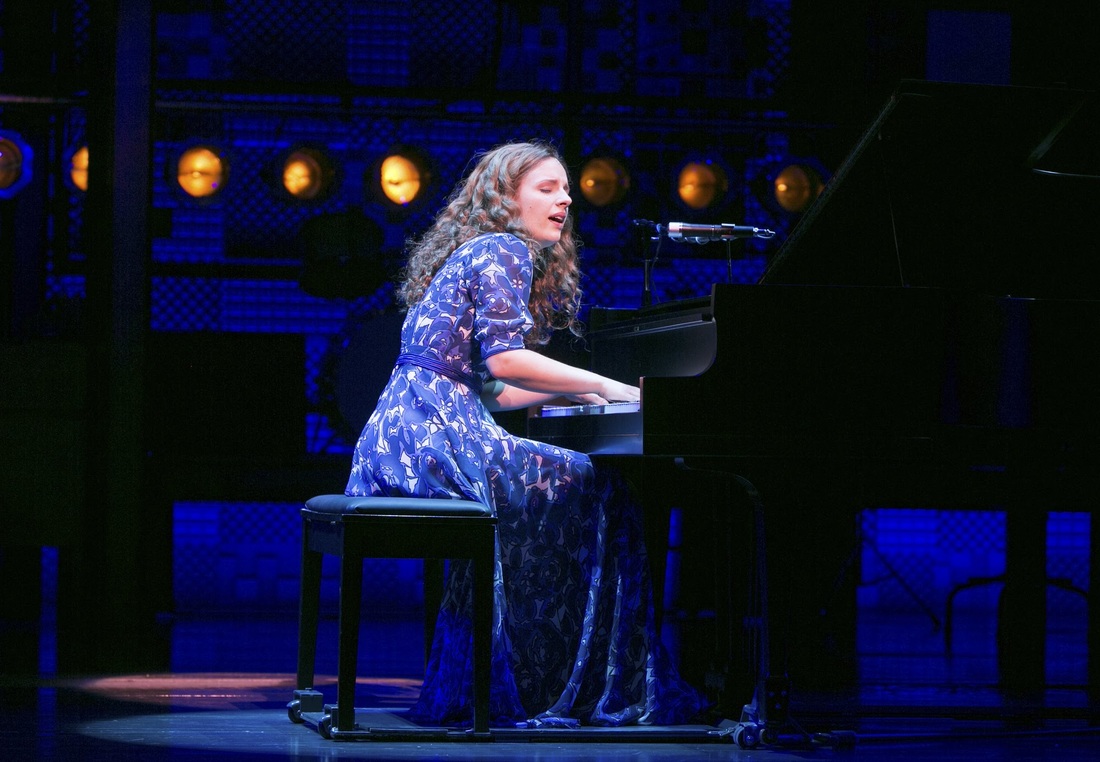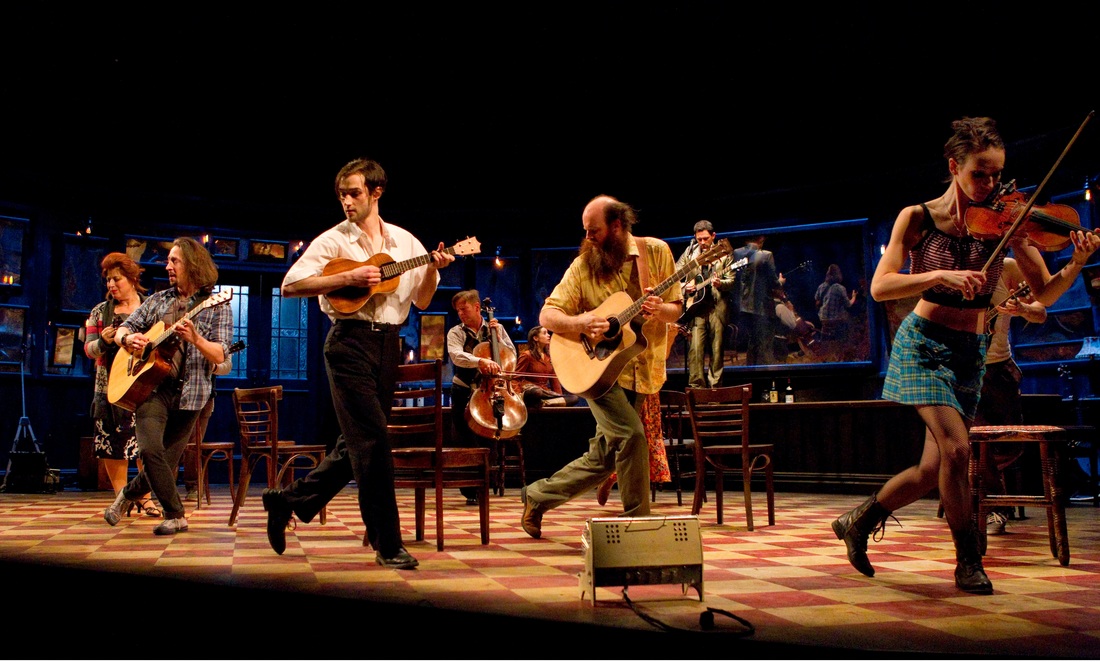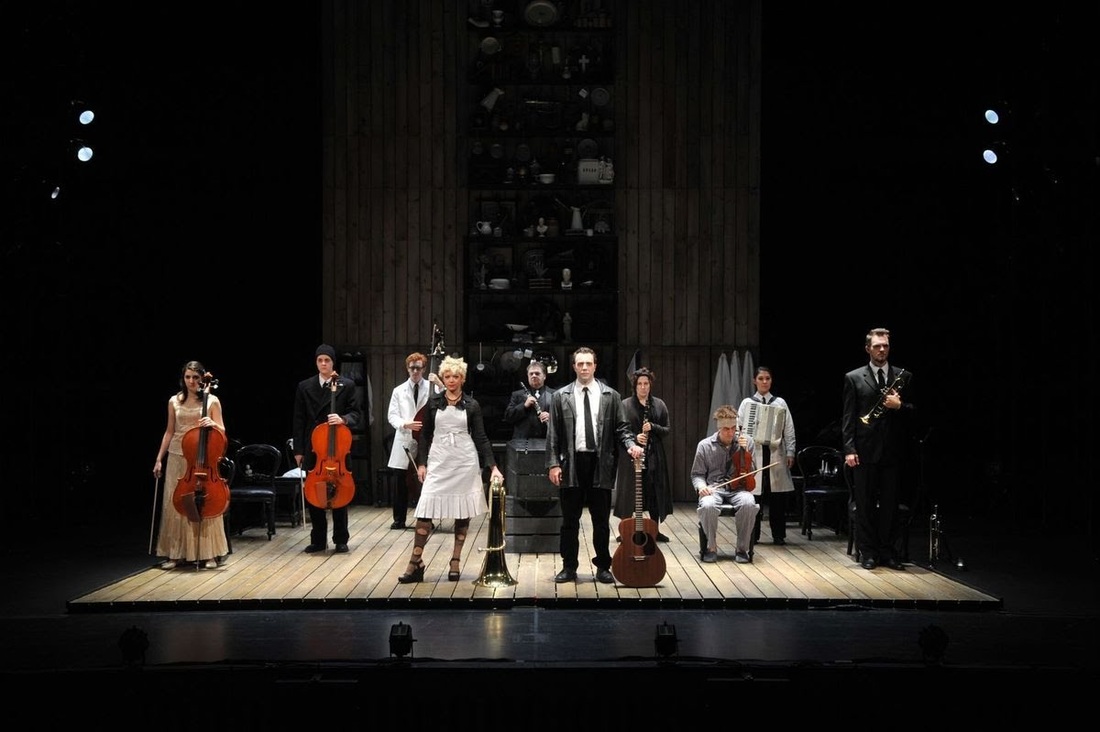|
The quadruple threat isn't new to Broadway / the musical theatre. The John Doyle-directed Sweeney Todd had them in 2005, as did the Raúl Esparza-led Company in 2006, and more recently the Roundabout Theatre Company's Cabaret had a live, onstage Kit Kat Klub band in 2014. There are certainly other and earlier examples, however with the recent announcement of Beautiful: The Carole King Musical heading our way (thanks to Michael Cassel), and other recent shows on Australian shores, this appears to be a trend that should be of interest to Australian performers. But what actually is a quadruple threat? Before we answer that question, let's brush up on the definition of a triple threat. In the sporting world a footballer is a triple threat if they're good at passing, kicking, and running. In the theatre a triple threat is a performer who can sing, dance, and act equally well across all three skill areas, possibly with only slight preference to any particular one. A quadruple threat adds one further skill - the ability to play a musical instrument. Jessie Mueller as Carole King in Beautiful: The Carole King Musical Some musicals that require / could use quadruple threats include Jersey Boys, Godspell, and SPAMALOT. In fact when I MD I like to try and get my performers to either learn / play the segments of potential onstage music (such as the piano cadenza in "You Won't Succeed on Broadway (if You Don't Have Any Jews)" and the parlour songs in Sweeney Todd). Recent examples of Melbourne performers playing instruments live on stage include the entire cast of Once (varied instruments), saxophone in StageArt's Saturday Night Fever, Luigi Lucente in Pursued By Bear's tick, tick... BOOM! (piano), and Amy Lehpamer and Cameron Daddo in The Sound of Music (guitar). Some of these parts could probably be taught to a performer during the rehearsal process (such as the simpler guitar chords in Sound of Music) - others require a more solid musical foundation, one that can take years to develop. The quadruple-threat cast of Once General benefits of music reading / playing include:
More specific benefits for musical theatre performers include:
The quadruple-threat cast of John Doyle's Sweeney Todd You've probably noticed that most of the instruments in the accompanying photos are pianos and guitars. This makes sense as they're both one of the 'chorded' instruments I was referring to earlier - instruments that can play chords / more than one note at a time. But if you're not currently a pianist / guitarist or they don't interest you, don't despair - included in the mix are violins, 'cellos, clarinets, a double bass, trumpet, piano-accordion, and even a tuba! A resourceful MD / director may call upon a variety of instruments that suit their needs and in those situations it's better to have any instrument than not.
So if you're keen to start tickling some ivories or strumming some strings, check out your local music teachers' association (the VMTA here in Victoria) or ask your friendly neighbourhood accompanist - if they can't teach you I'm sure they'd be able to put you onto someone who can. So go forth, learn an instrument and make yourself a better, smarter, and ultimately more employable performer! |
Categories
All
Archives |




 RSS Feed
RSS Feed